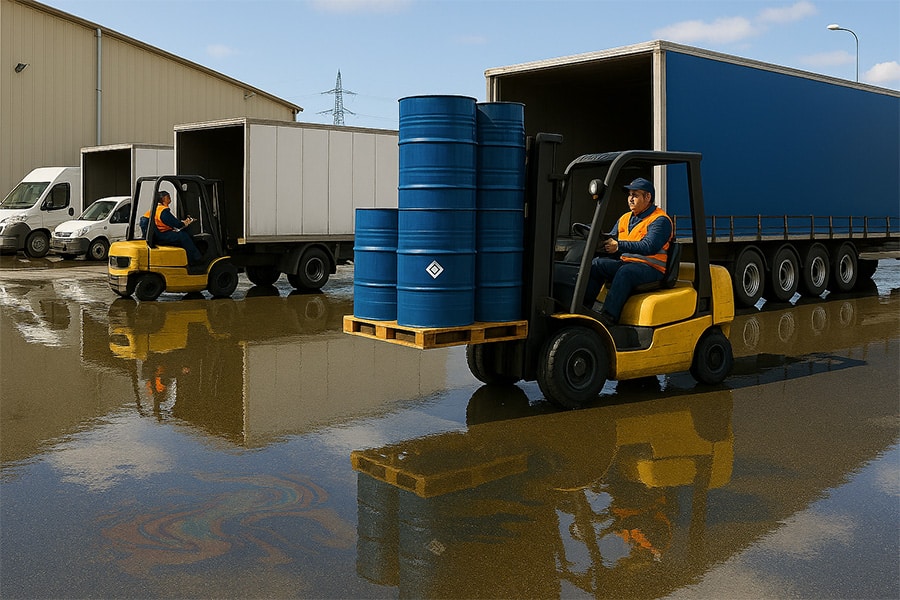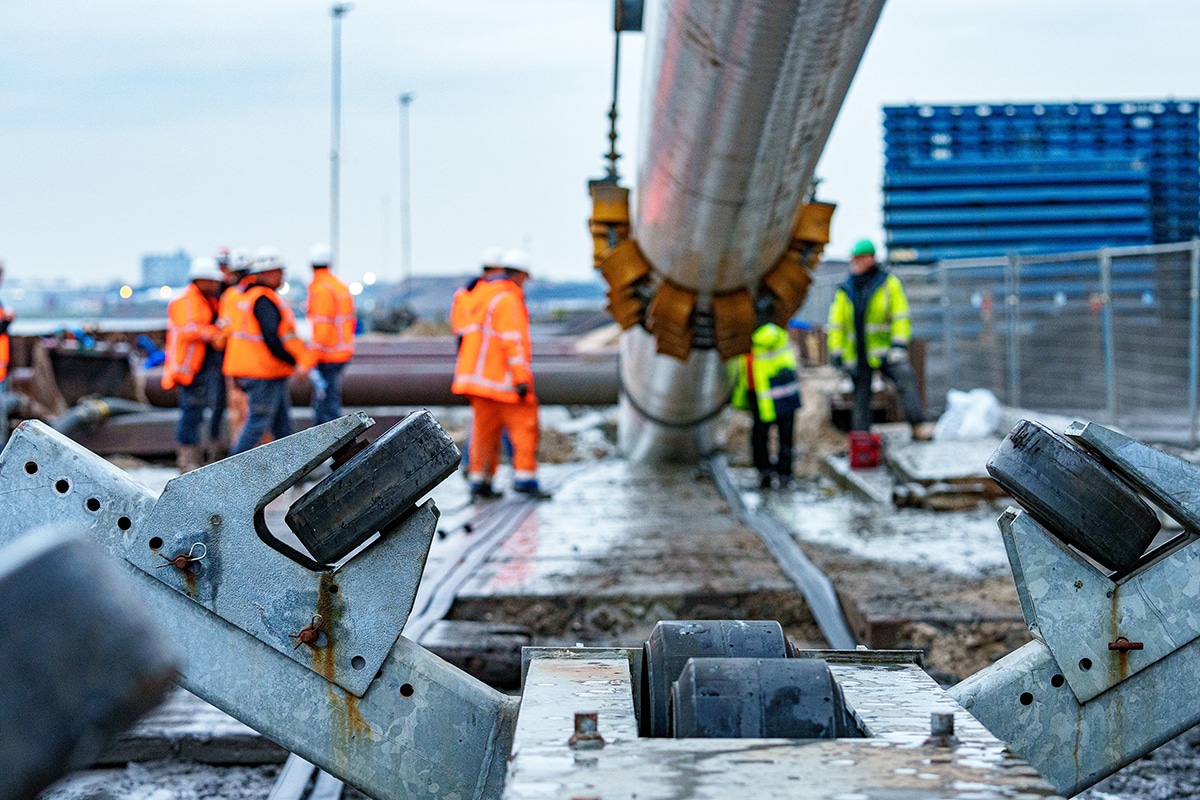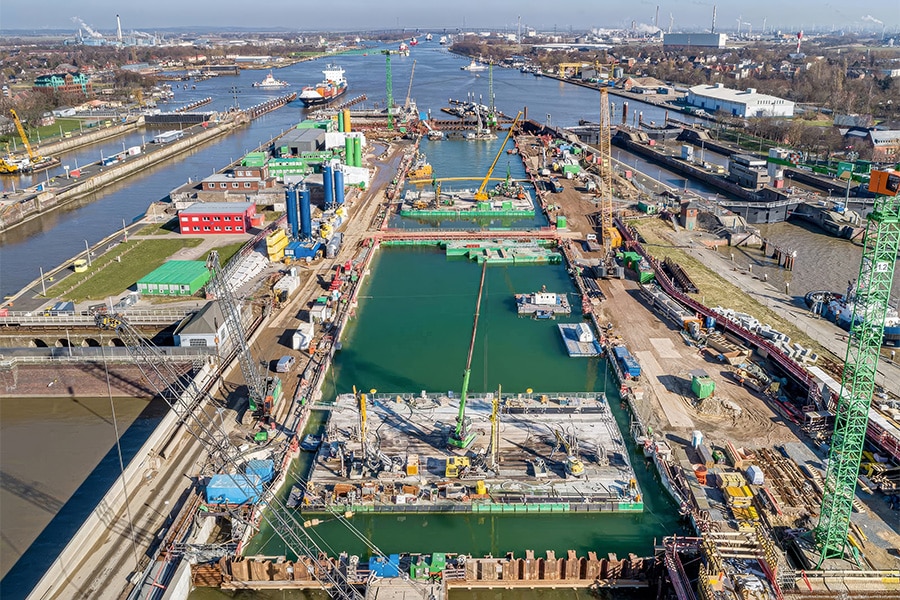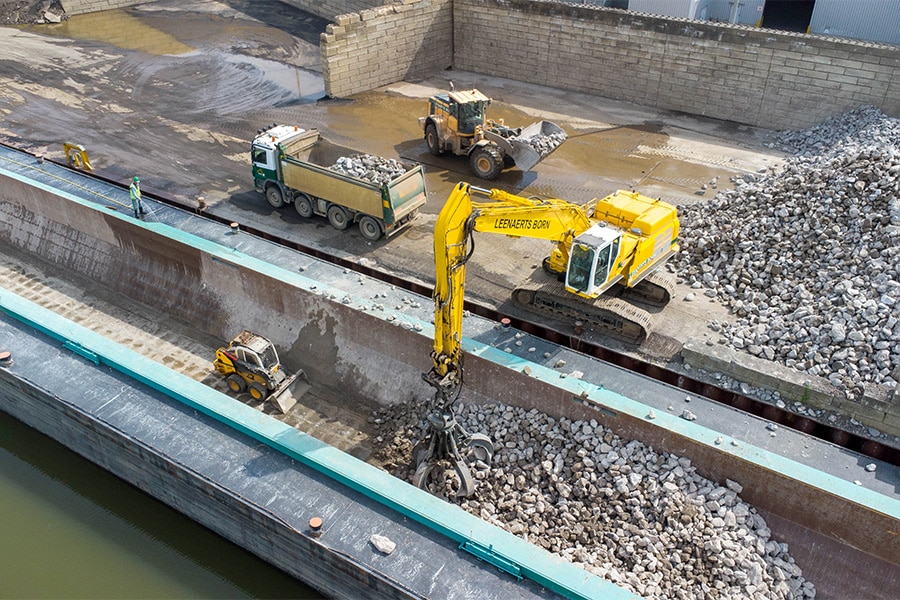
Port of Born transshipment company as logistics link widens Juliana Canal
Silt, gravel and crushed stone. These three materials are supplied or removed in large quantities during the widening of the Julianakanaal canal. The supply and removal goes via Overslagbedrijf Haven Born, which has its own unloading quay at Franciscushaven in Born.
"We can load and unload ships up to 5,000 tons on our unloading quay," says Joyce Leenaerts, director of Leenaerts Born. Overslagbedrijf Haven Born (OHB) is part of Leenaerts Born, a medium-sized family business that has been active for 50 years in ground, road and hydraulic engineering, transport and trade in raw materials and building materials. The projects she is used for are mostly in the region of Limburg and across the border in Germany. Since 2008, it has its own storage and transshipment yard at the Franciscushaven in Born. "Our storage and transshipment yard is approximately 35,000 m2 in size, of which 10,000 m2 is liquid-proofed. We have the necessary environmental permits to store contaminated sludge, among other things."
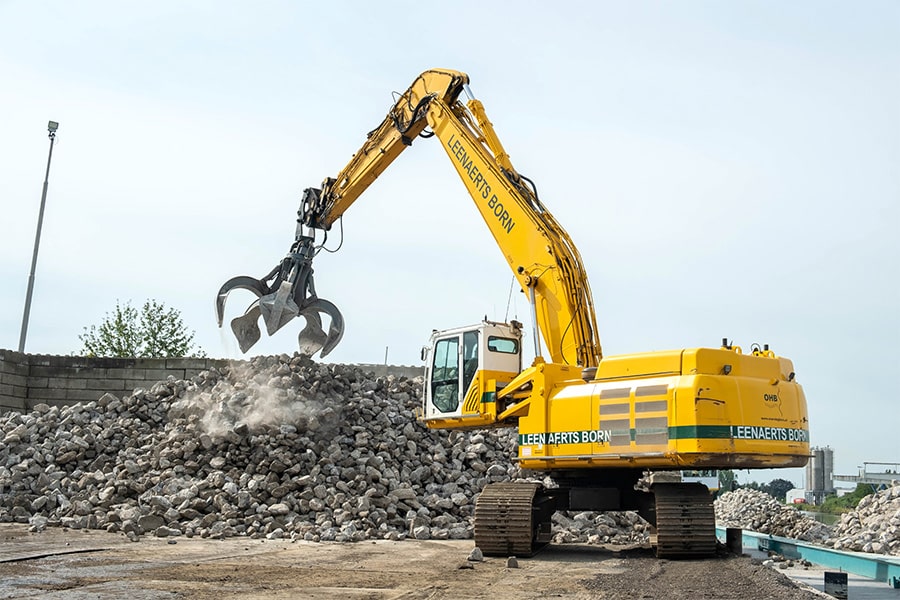
Ideal location
The ability to store contaminated sludge, combined with its location on the canal and close to several exit roads towards Germany and Belgium, makes it the perfect location for the supply and removal of materials from the Juliana Canal. The site also has weighbridges so that everything can be checked directly. "We take care of the transfer of the sludge. We transport this by trucks from the canal to our site and transfer it into ships there. By water it is then transported to the two national depots. The Hollandsch Diep dredged material depot and De Slufter on the Maasvlakte. At the same time, OHB brings in material such as sand, gravel and rubble by water. We transfer this to our trucks that transport it directly to the Juliana Canal."
The team from Leenaerts Born is proud to participate in the Julianakanaal project. Joyce: "We are a Limburg company, which makes it extra nice that we can contribute to this beautiful project."

